#ken uehara
Text

Hiroshi Shimizu’s “有りがたうさん” (Mr. Thank You) February 27, 1936.
38 notes
·
View notes
Photo
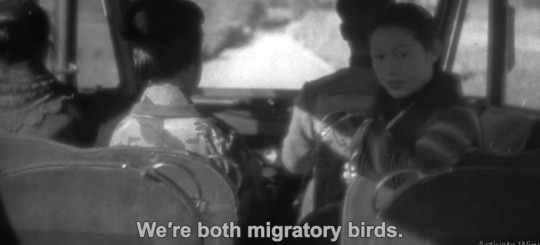

Mr. Thank you (1936)
dir. Hiroshi Shimizu
#mr.thank you#hiroshi shimizu#old films#japanese cinema#cinema#cinematography#cinephile#black and white cinematography#film quotes#film#yasujiro ozu#Japan#30s film#Akira Kurosawa#seven samurai#michiko kawano#ken uehara
282 notes
·
View notes
Text

Ken Uehara, November 7, 1909 – November 23, 1991.
With Michiko Kuwano in Hiroshi Shimizu's Mr. Thank You (1936).
11 notes
·
View notes
Photo

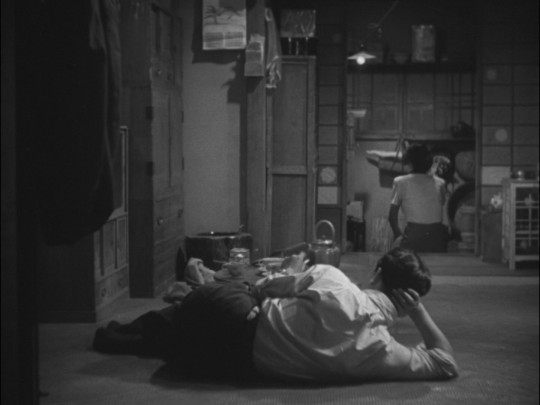

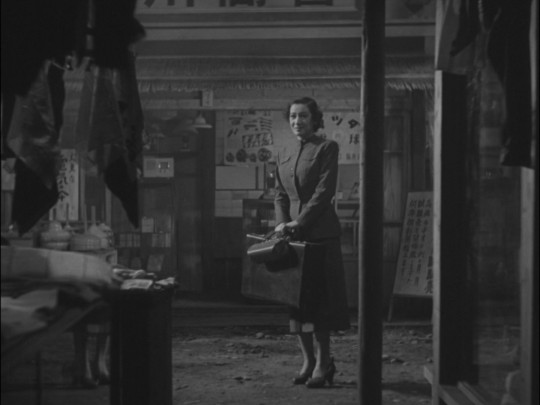

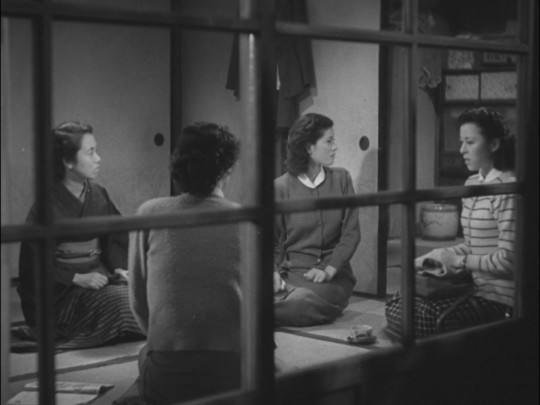
Meshi (Naruse Mikio, 1951)
#meshi#naruse mikio#mikio naruse#repast#hara setsuko#setsuko hara#uehara ken#ken uehara#japanese cinema#japanese movies#japanese film#1951
14 notes
·
View notes
Photo


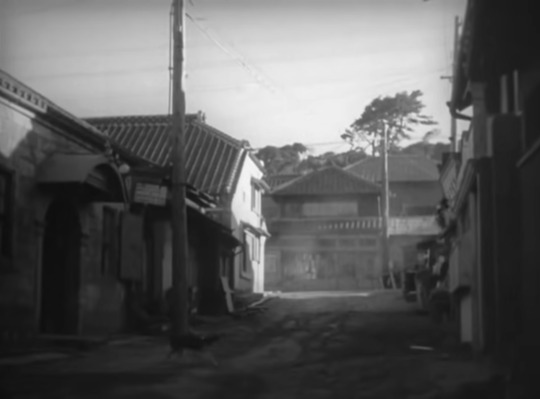
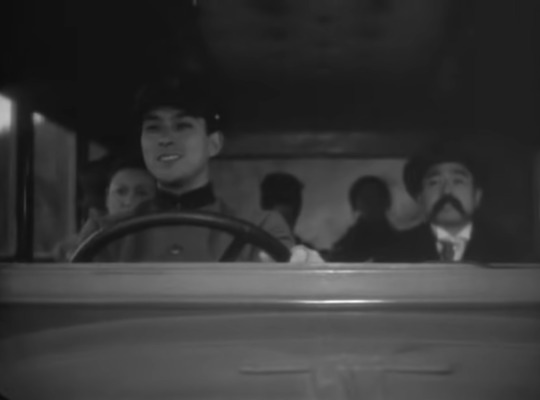

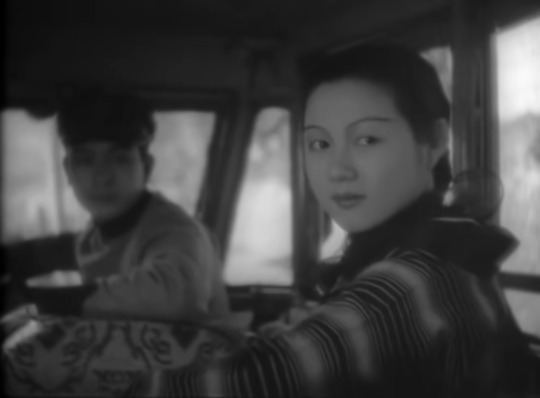


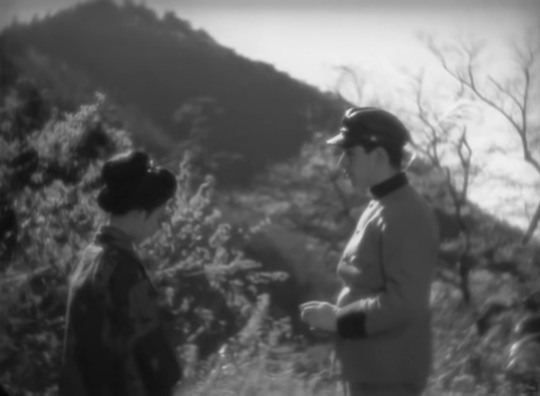

Mr. Thank You (1936)
#mr thank you#mr. thank you#hiroshi shimizu#ken uehara#michiko kuwano#mayumi tsukiji#kaoru futaba#talks
13 notes
·
View notes
Photo
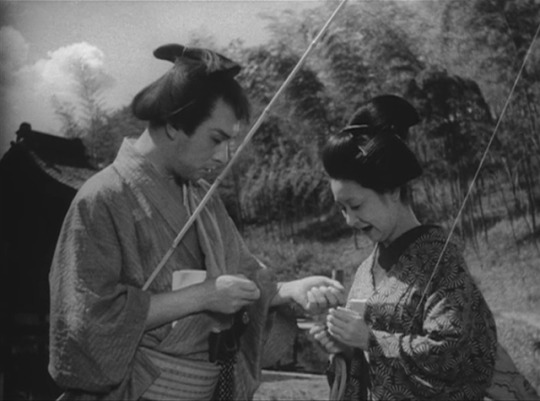
Ken Uehara and Kinuyo Tanaka in Yotsuya Kaidan (Keisuke Kinoshita, 1949)
Cast: Kinuyo Tanaka, Ken Uehara, Osamu Takizawa, Keiji Sada, Hisako Yamane, Jukichi Uno, Aizo Tamashima, Choko Iida. Screenplay: Eijiro Hisaita, Masaki Kobayashi, based on a play by Nanboku Tsuruya. Cinematography: Hiroshi Kusuda. Production design: Isamu Motoki.
Yotsuya Kaidan is one of the most famous Japanese ghost stories, put in classic form in the kabuki drama written by Nanboku Tsuruya in 1825. But in adapting the tale of a ronin, a masterless samurai, pursued by the vengeful phantom of the wife he murdered, Keisuke Kinoshita and his screenwriters, Eijiro Hisaita and the uncredited Masaki Kobayashi, jettisoned the supernatural elements to turn it into a psychological drama with overtones of Shakespeare tragedy: the ambition of Macbeth and the jealousy of Othello, abetted by an Iago-like villain. The ronin of Kinoshita's film, Iemon Tamiya (Ken Uehara), was dismissed by his former master for failing to guard the storehouse from a thief; he now ekes out a living with his wife, Oiwa (Kinuyo Tanaka), making and selling umbrellas. But while drowning his sorrows in sake one evening, he is approached by Naosuke (Osamu Takizawa), who plants in him the idea of wooing the wealthy Oume (Hisako Yamane), whose father has the connections that would enable him to find a master and restore his status as a samurai. Naosuke also plots with Kohei (Keiji Sada), with whom he served some jail time, to woo Oiwa, with whom Kohei has been infatuated since the days when she worked in a teahouse. Kohei's attentions to Oiwa arouse Iemon's jealousy, which Naosuke plays upon. As the prospect of marrying Oume becomes more likely, Iemon is given a poison to use on Oiwa, but he's initially reluctant to go that far. When Oiwa accidentally scalds her face, producing a horrible disfigurement, Naosuke provides an "ointment" that puts her in terrible pain and Iemon administers the poison. In the turmoil that follows Oiwa's death, Naosuke also kills Kohei. Freed to marry Oume, Iemon finds himself tormented by a guilty conscience, and when he learns that Naosuke was the one who robbed the storehouse that led to Iemon's dismissal by his former master, he turns on the conspirator. A fiery conclusion results. Kinoshita released the film in two parts, the first running for 85 minutes, the second for 73 minutes. Part I is more tightly controlled, efficiently introducing its characters -- there are lots of secondary ones, including Oiwa's sister, Osode (also played by Tanaka), and her husband, Yomoshichi (Jukichi Uno), who provide a kind of grounding in normal life. Kinoshita is not as successful at marshaling all of the secondary plots in Part II, and I tend to blame the director's tendency to sentimentalize, including the search of Kohei's mother for her son, for the weaknesses in the later parts of the film. But he gives his characters depth -- there is more sympathy for Iemon in the film than in more traditional versions of the story, which has been filmed many times.
2 notes
·
View notes
Text
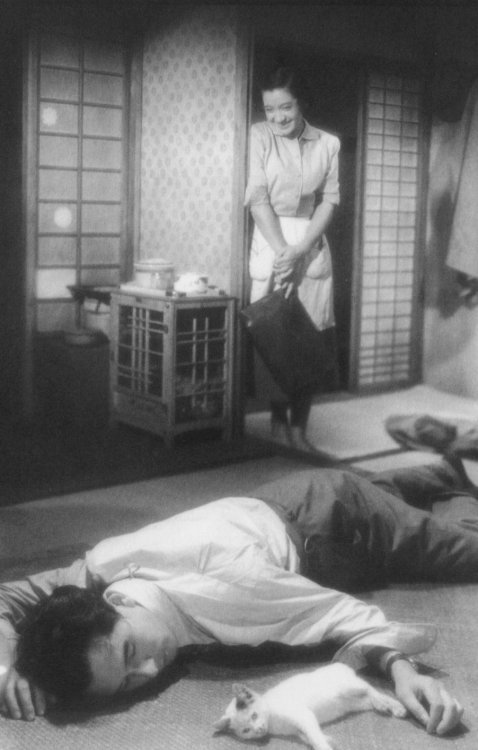
Setsuko Hara and Ken Uehara with a cat in Mikio Naruse’s film Repast (1951).
4 notes
·
View notes
Text
Fist of the North Star Musical Returns for Autumn Performances

After the nuclear war of 199X, Kenshiro just wants to sing and dance. And explode people's heads, of course.
The Fist of the North Star musical is coming back this autumn, bringing both new and returning cast members to the stage in Tokyo and Fukuoka. Based on the manga written by Buronson and illustrated by Tetsuo Hara, the show was originally produced by Japanese talent agency Horipro and Chinese theater production company Ranspace. Ako Takahashi penned the script and lyrics, with Frank Wildhorn composing the music and Sachiko Ishimaru directing. Its first run kicked off in December 2021.
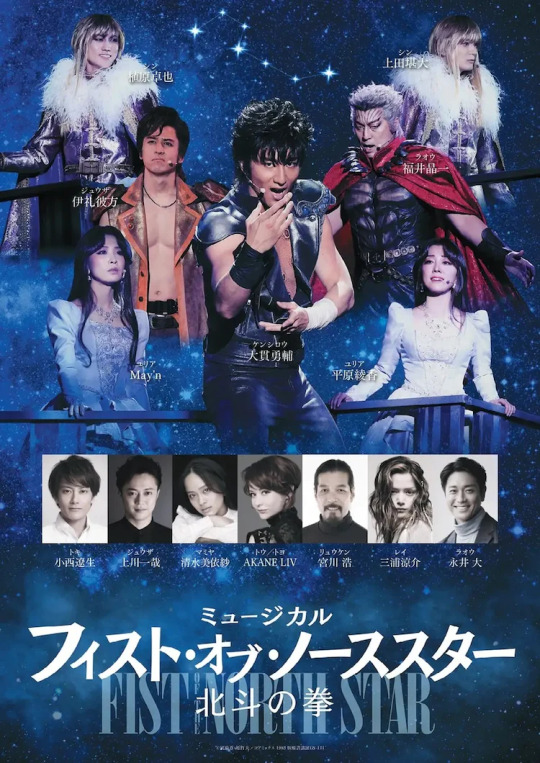
RELATED: Meet the Main Cast of Fist of the North Star Musical in Video & Photos
Much of the main cast will be returning. Yusuke Onuki will reprise the role of Kenshiro, with Ayaka Hirahara and May'n trading off the role of Yuria. Takuya Uehara and Kandai Ueda will also return as Shin. GARO actor Ryosei Konishi will be taking over the role of Toki in both casts, and singer AKANE LIV will play both Tou and Toyo.
If you're wondering what a Fist of the North Star musical would look and sound like, check out this digest video from the show's original run:
youtube
RELATED: Watch Kenshiro's Powerful Dance Performance for Fist of the North Star Musical
Fist of the North Star ~Hokuto no Ken~ is scheduled to begin its new run at Tokyo's Bunkamura Orchard Hall September 25-30. It will then move on to Fukuoka's Canal City Theater, where it will run October 7-10.
Source: Comic Natalie
Watch Fist of the North Star on Crunchyroll!

------
Kara Dennison is the book reviewer for Sci-Fi Magazine and a regular features writer for Otaku USA Magazine. Follow her on Twitter @RubyCosmos, and read more at KaraDennison.com.
By: Kara Dennison
2 notes
·
View notes
Text
Atragon
Atragon (1963) starring Ken Uehara, Jun Tazaki
In Aragon, strange occurrences are taking place all around the world. It turns out that the Mu Empire, an ancient underground civilization that disappeared 12,000 years earlier, are responsible. They are plotting to reclaim the surface world, with their advanced technology. As the attacks by the Muans increase the surface world has only one hope to…

View On WordPress
0 notes
Photo
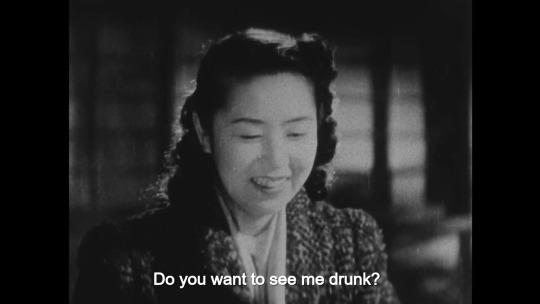
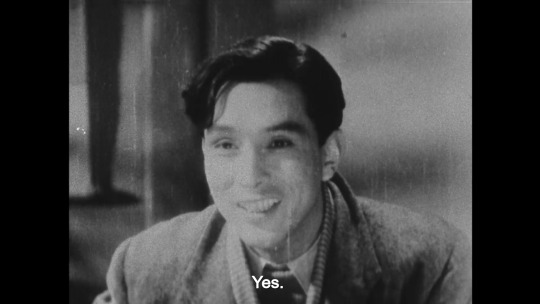

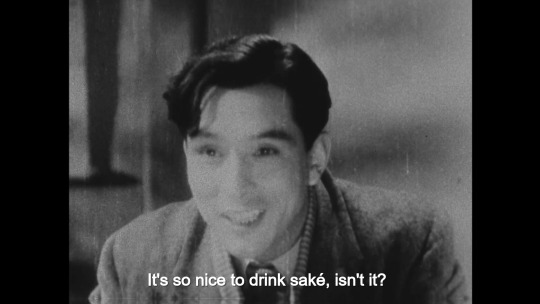

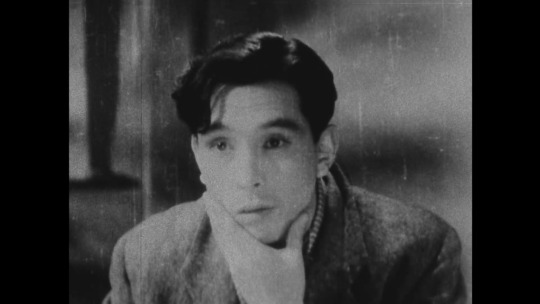
Kekkon (Keisuke Kinoshita, 1947)
21 notes
·
View notes
Photo

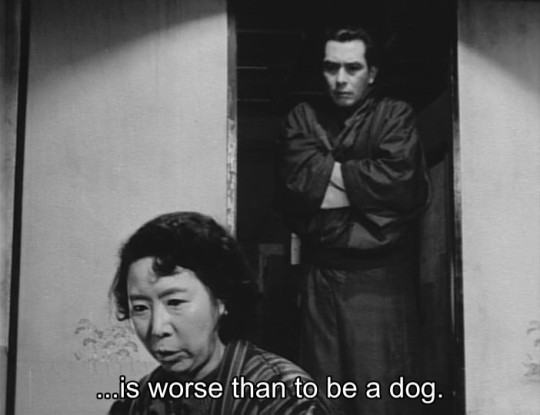
Entotsu no mieru basho (Gosho Heinosuke, 1953)
#entotsu no mieru basho#gosho heinosuke#heinosuke gosho#gosho#where chimneys are seen#Tanaka Kinuyo#Kinuyo Tanaka#uehara ken#ken uehara#1953#japanese movies#japanese cinema#japanese film
4 notes
·
View notes
Photo
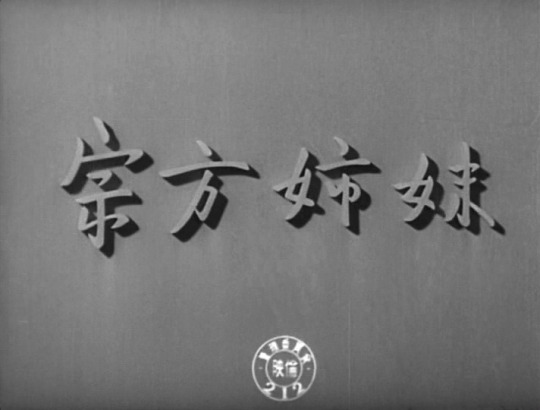
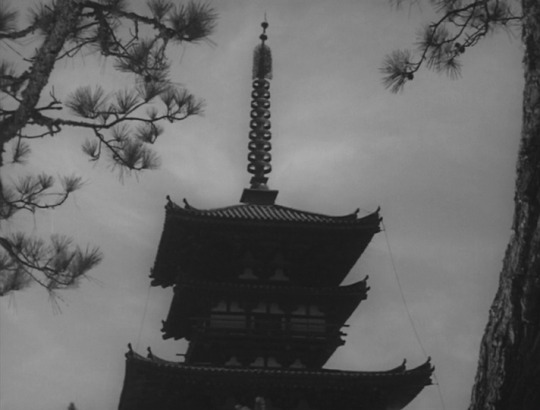
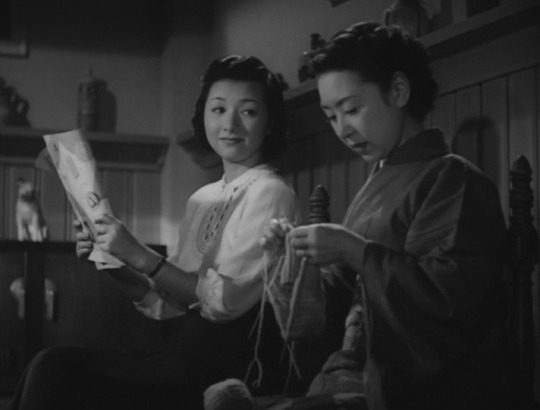
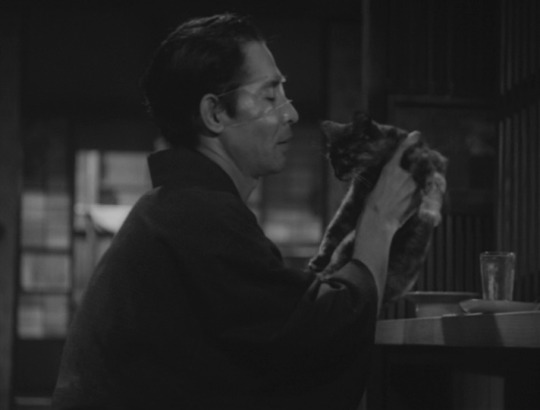
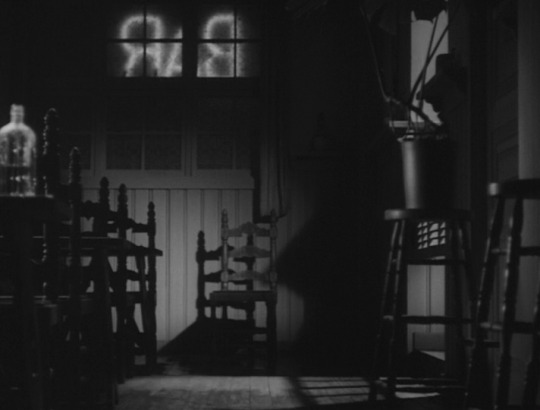
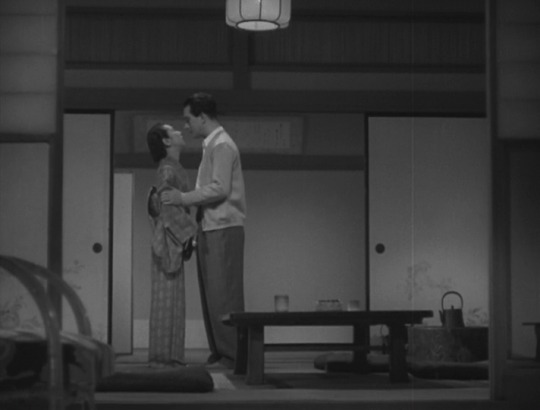


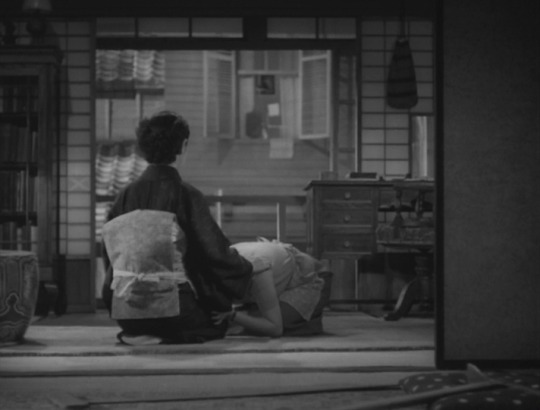
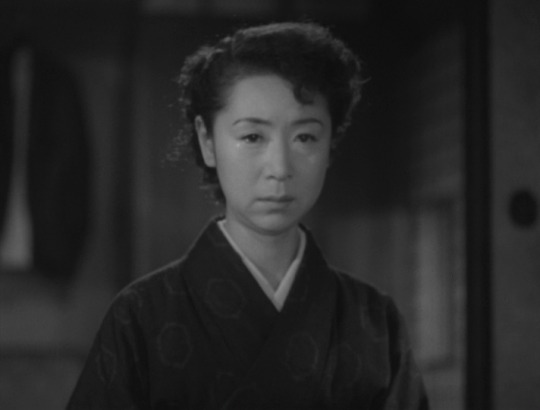
The Munekata Sisters / Munekata kyōdai (1950, Yasujirō Ozu)
宗方姉妹 (小津安二郎)
1/16/22
#The Munekata Sisters#Munekata Kyodai#Yasujiro Ozu#Hideko Takamine#Kinuyo Tanaka#Chishu Ryu#Ken Uehara#Sanae Takasugi#So Yamamura#Tatsuo Saito#Yuji Hori#drama#50s#Japanese#Japanese Golden Age#gendaigeki#sisters#terminal illness#marital problems#unemployment#domestic abuse#bars#misogyny#old flame#forbidden love#Kyoto
5 notes
·
View notes
Photo

Kekkon (Kinoshita Keisuke, 1947)
#kekkon#kinoshita keisuke#keisuke kinoshita#uehara ken#ken uehara#tanaka kinuyo#kinuyo tanaka#gif#1947#marriage#japanese cinema#japanese film#japanese movies
30 notes
·
View notes
Text
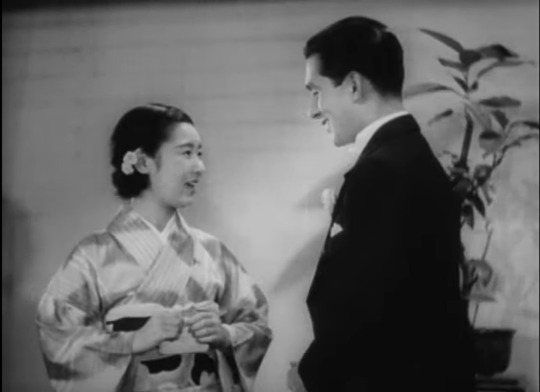
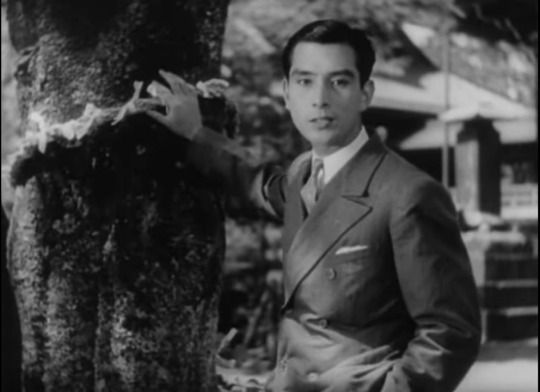
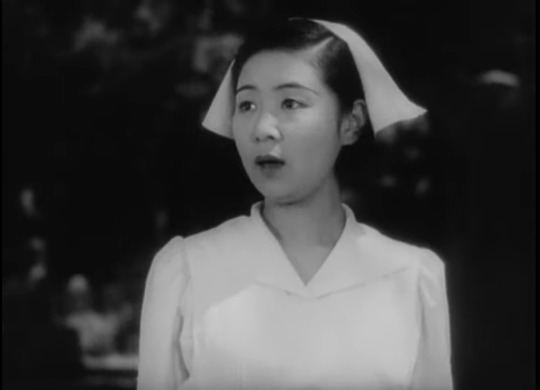
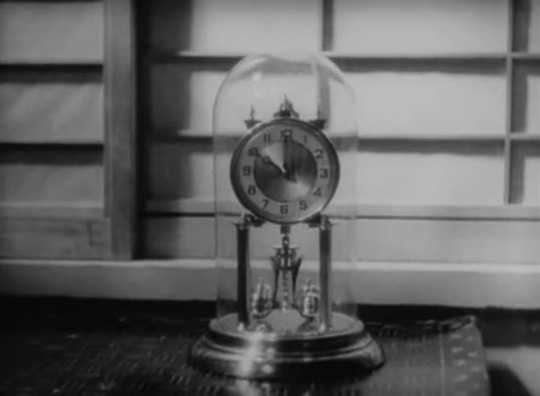


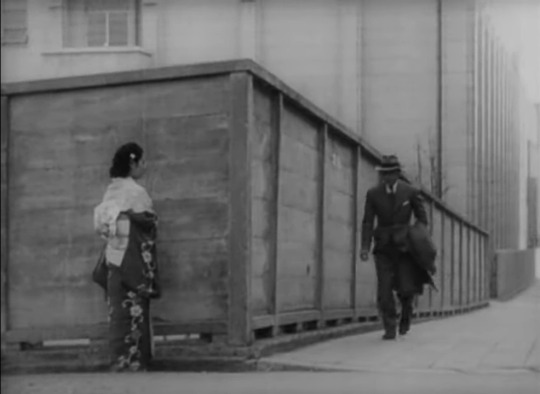

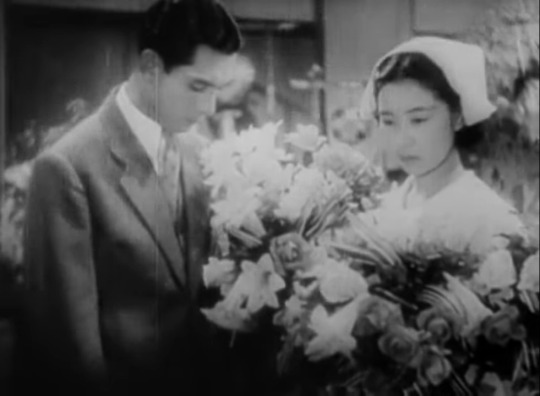
Hiromasa Nomura's Aizen Katsura (1938)
6 notes
·
View notes
Photo
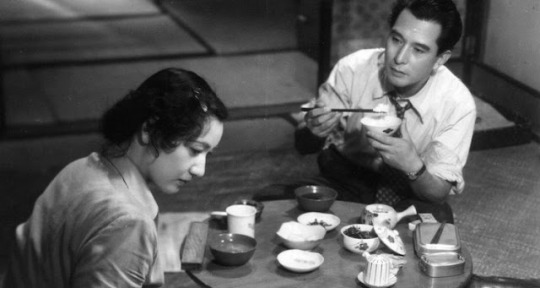
Setsuko Hara and Ken Uehara in Repast (Mikio Naruse, 1951)
Cast: Setsuko Hara, Ken Uehara, Yukiko Shimazaki, Yoko Sugi, Akiko Kazami, Haruko Sugimura, Ranko Hanai, Hiroshi Nihon'yanagi, Keiju Kobayashi. Screenplay: Toshiro Ide, Sumie Tanaka, Yasunari Kawabata, based on a novel by Fumiko Hayashi. Cinematography: Masao Tamai. Art direction: Satoru Chuko. Music: Fumio Hayasaka.
Repast is one of those beautifully layered films by Mikio Naruse that defy simplistic judgments about the characters. Superficially, it's a story about a failing marriage that tempts you to take sides: Michiyo (Setsuko Hara) and Hatsunosuke (Ken Uehara) have been married long enough that the tenderness has rubbed off of the relationship, and they have no children to provide a distraction from the routine of living together. She suffers the tedium and toil of keeping house, and he comes home from his salaryman's job in an office tired and frustrated. They are scraping by financially, and live in a less than desirable neighborhood. Initially the focus seems to be on the woman's lot -- she's the one we see doing all the lonely work of managing the house, whereas he at least has the opportunity to get out and fraternize with his fellow office workers. And when his lively young niece, Satoko (Yukiko Shimazaki), comes to visit -- actually to escape from family pressure to settle down and get married -- Michiyo finds herself slaving for both her husband and his niece. Eventually, things come to a head and Michiyo goes to Tokyo, taking Satoko back to her parents and leaving Hatsunosuke to fend for himself, which he doesn't do a particularly good job of. But Naruse is careful to let us see his side of things as well, and when Michiyo returns to him -- after making a few steps toward finding a job and leaving him permanently -- it's possible to see this as not a defeat for her so much as an acknowledgement that some remnants of their original affection remain and that she has decided to try to build a more equitable relationship on them. The performances of Setsuko Hara and Ken Uehara, who starred in several other films for Naruse, have that lived-in quality necessary for such a muted and ambivalent conclusion.
1 note
·
View note
